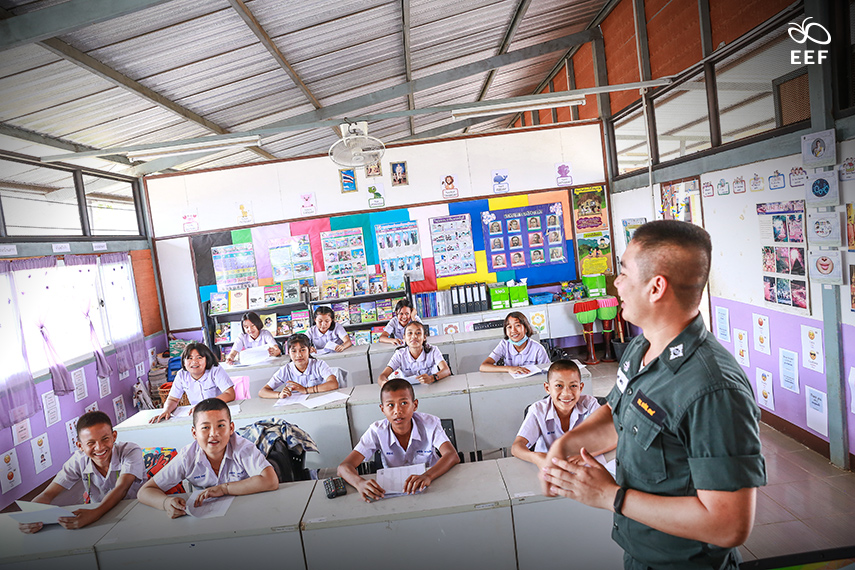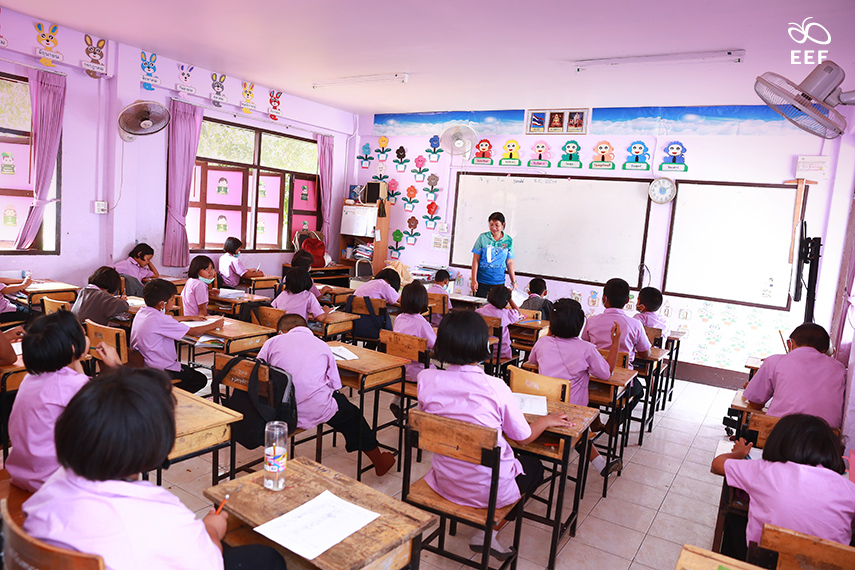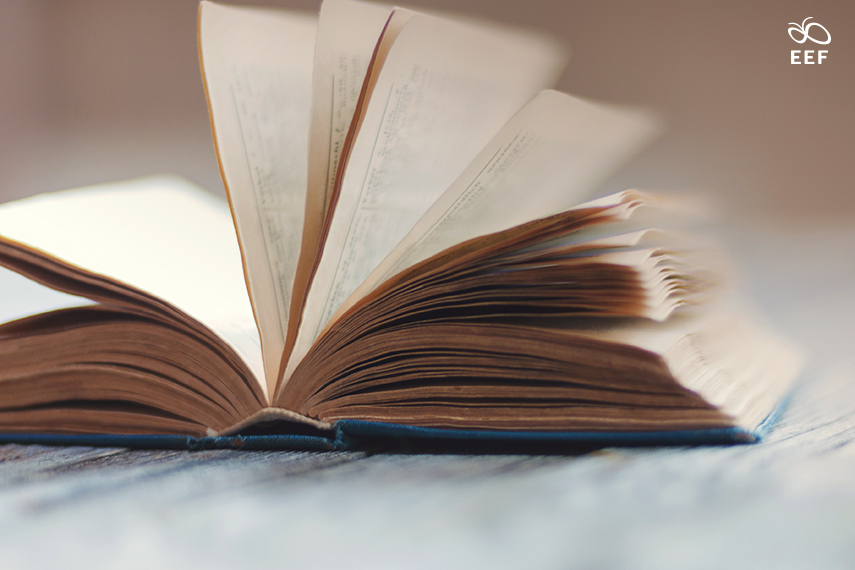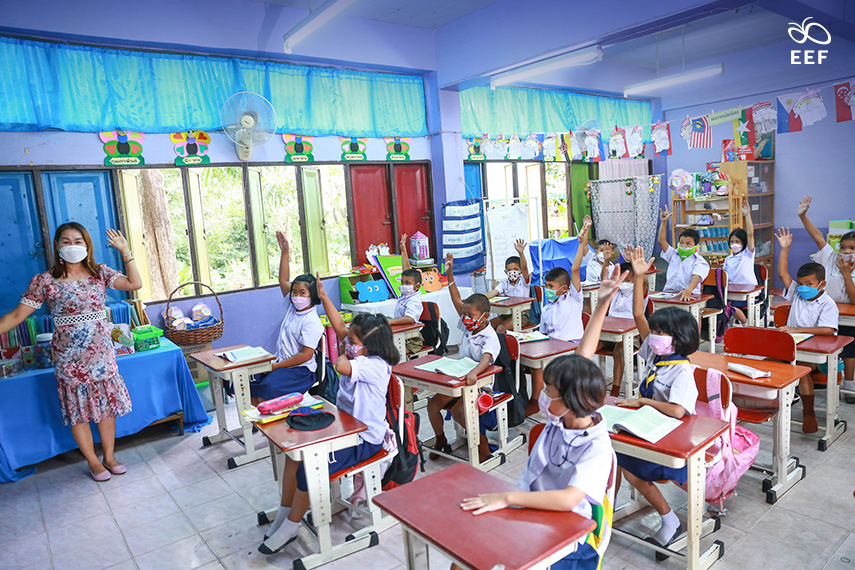
The Teacher, School, and Learning Management Unit Development Project was initiated in 2022 by the Equitable Education Fund (EEF) Thailand with the aim of creating and implementing transformational models of change. It focuses on 3 key areas:
1) Developing teachers and learning management personnel;
2) Establishing a network for knowledge exchange and sustainable self-development; and
3) Enhancing schools and learning management units.
These efforts contribute to the development of learning and life skills for children and youth both within and outside the formal education system.
The project’s primary objective is to establish a comprehensive and equitable educational environment, providing assistance and fostering the development of children and youth across all age groups in Thai society. This can be accomplished by enhancing the quality and effectiveness of teachers while providing support to educational institutions through various initiatives. These endeavors collectively enable teachers, schools, and learning management units to offer tailored learning experiences that cater to the diverse backgrounds and potentials of children and youth, thereby addressing educational disparities, especially in remote areas and areas with limited resources. These initiatives include:

1) Police-Teacher Development Project for Border Patrol Schools
To enhance teacher capacities in Border Patrol Police (BPP) schools, the EEF has initiated the Police-Teacher Development Project for Border Patrol Schools. This project aims to improve the skills of teachers in 68 BPP schools across 22 provinces, with the goal of creating exemplary institutions that prioritize quality improvement and teacher development. The project involves various types of teachers, including head teachers, regular teachers, police teachers, and teachers from public or private agencies, totaling 685 individuals. Collaboration between the EEF, Border Patrol Police Headquarters, and local educational institutions is crucial for implementing the project’s school-based teacher development concept.
Through this project, teachers have gained valuable experience and developed competencies in attitudes, perspectives, skills, and knowledge, resulting in more effective and transformative learning experiences for students. The active participation of parents, communities, and local organizations has also enriched the learning process. The project has successfully raised the overall quality of education in BPP schools, particularly benefiting children in remote areas. It has also contributed to the professional development of BPP teachers and plans are underway to replicate this teacher development model in other BPP schools to further improve education quality and support the holistic development of children and youth in the region.

2) Informal Teacher Competency Development Prototype Project
The Informal Teacher Competency Development Prototype Project is a collaborative initiative between the EEF and the Research and Development Unit for Child and Youth Development at Chulalongkorn University. Its objective is to analyze the competencies of teachers operating outside the formal education system and propose models for their professional development, along with policy recommendations.
The project involved 210 teachers from different regions, addressing the unique challenges faced by various groups of informal teachers, such as those in border provinces or working with children and youth with disabilities, or in transitional justice processes.
Three prototypes were developed:
1) the model of regular teachers, focusing on participatory management and local network-based development;
2) the model of teacher-developers, emphasizing experiential learning and practical activities aligned with teachers’ interests; and
3) the model of volunteer teachers, centered around wisdom education and experiential learning-based training.
Informal teachers outside the formal system play a vital role in supporting children and youth in non-traditional education settings, providing access to education, addressing individual needs, and developing vocational skills. By elevating the status of informal teachers and promoting societal acceptance, this project presents valuable policy proposals for the benefit of children and youth in non-formal education contexts.

3) Educational Opportunity and Extensive Learning Expansion Project by Princess Maha Chakri Award Foundation Teacher Network
The Educational Opportunity and Extensive Learning Expansion Project by the Princess Maha Chakri Award Foundation Teacher Network aims to establish a network of teachers who have received the Princess Maha Chakri Awards. The network’s objective is to create a mechanism that enhances the academic capacity of teachers, including both award-winning teachers, from first to fourth generation, and education professionals from across the country.
Implemented by the EEF for one year, the project has surveyed the interest of teachers in the network and collaborated on designing activities to create strong local and national networks. The goal is to promote knowledge and skill exchange and collaboration among teachers and reduce educational disparities. The extended network consists of approximately 315 out of 630 teachers from 77 provinces nationwide.
This strengthened teacher network will serve as a driving force to stimulate and reinforce transformative thinking in education, benefiting children, youth, and society as a whole. The impact of the extended network is expanding and reaching the wider public. The knowledge and products obtained will be utilized by the EEF to further strengthen and broaden the network’s impact.

4) Innovative Local Learning Community and Environment Support Project
In the present era, learning extends beyond traditional classrooms and teachers. The Innovative Local Learning Community and Environment Support Project aims to develop innovative curricula and knowledge systems that align with learner needs. The project collaboratively develops teachers and educational personnel, helping them identify their development gaps and fulfill their potential through lifelong learning concepts.
To facilitate continuous professional development, the project has created a learning platform for teachers and educational personnel. This platform serves as a space for exchanging experiences and teaching techniques, focusing on seven sub-projects. One of these projects, “Teacher Hero,” empowers 15 teachers from various provinces to organize learning activities for students, families, and communities, fostering collaborative learning and knowledge exchange.
The project expands its scope through collaborations with organizations and educational institutions, involving 1,600 schools. Tangible outcomes include the development of 10 teachers who have been trained in learning community prototypes. They can apply their knowledge in their classrooms, establish networks in their areas, and potentially become knowledge creators or trainers for other educational professionals from other educational areas.
Source: Equitable Education Fund. (2022). Annual Report.
https://www.eef.or.th/wp-content/uploads/2023/04/oiteef2023-O13.pdf

